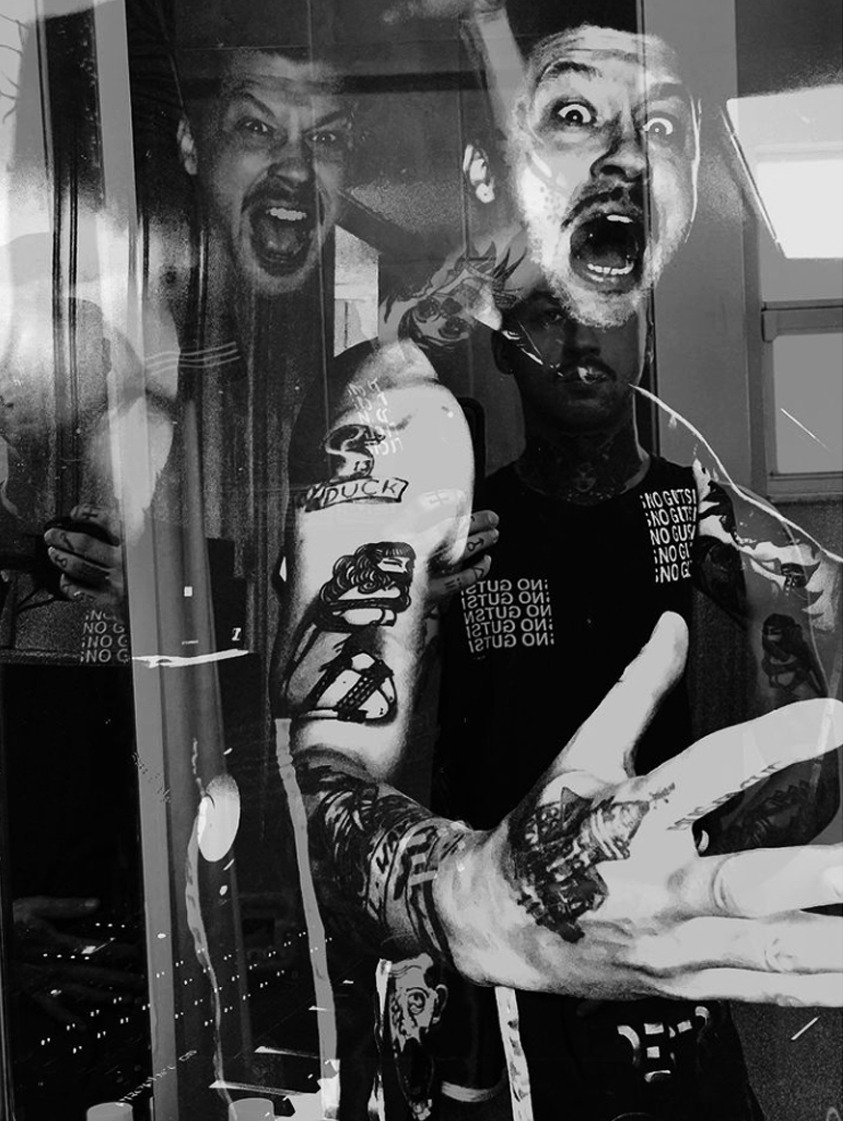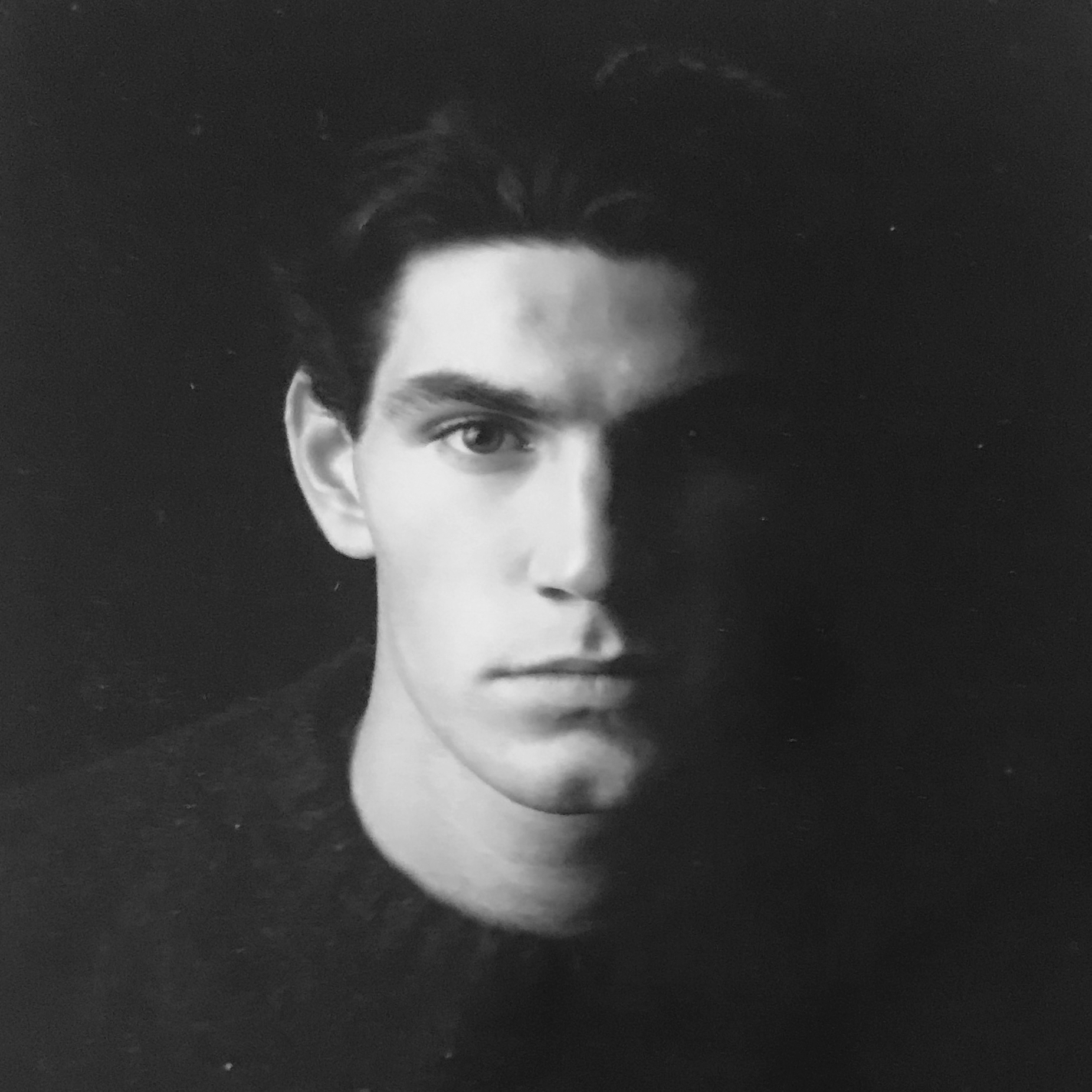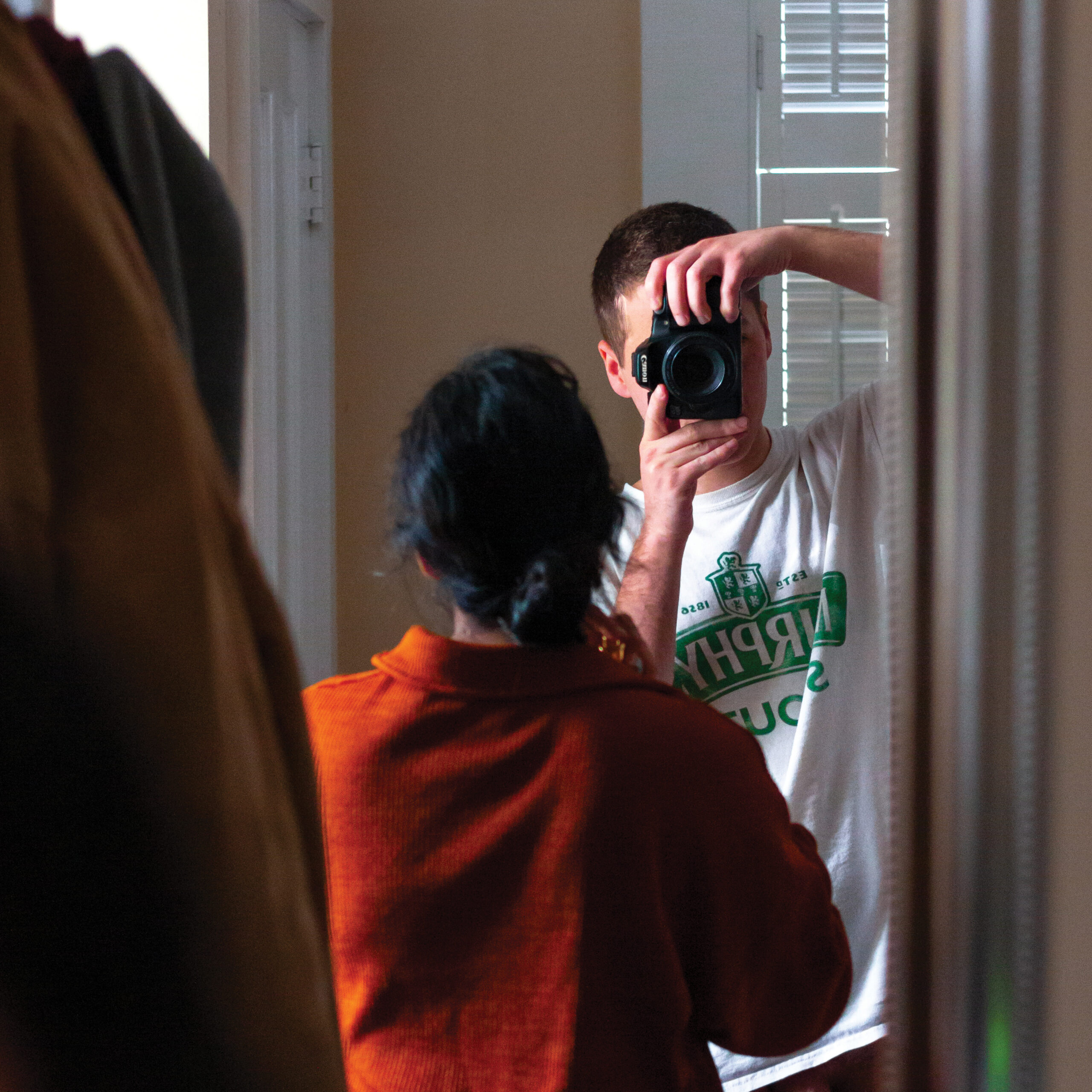ERIK HARRIS is an independent musician and the multi-talented mastermind behind GOLDpny, Harris’ radical music persona AND A SOURCE OF working-class masculinity absent in much of today’s music scene. Like one of his musical inspirations David Bowie, GOLDpny is as much a visual artist as he is a musician, albeit with a more middle America Mossy Oak sensibility. Finding himself as an artist in the hardcore scene, Erik FOLLOWS A ROUGH CODE OF ETHICS, and his hardcore roots can be heard in the SCREAMED aggression of GOLDpny’s albums WAR and ASSASSINS, as well as in his intermittent spinoff projects — like White Crime, a duo band featuring GOLDpny and his brother Knox. GOLDpny is a sincere provocateur; although, as was clear when we spoke, the effect of his provocations is ultimately uplifting and inspiring. Time moves quick, but GOLDpny moves quicker, which makes some points of discussion in this interview already out-of-date — though nonetheless honest and TRUE. This interview followed the release of White Crime’s excellent track “our first song.”
***
RYAN SIMÓN: Music is so adaptable, media-wise. I mean, every musician now complains about Spotify and the “democratization of the arts,” the absence of gatekeeping, and how we’re all just aimlessly floating in an ocean of artists, et cetera—but music can latch onto virtually any popular medium, like podcasting for example, which is something you’ve done. I think a lot of musicians who complain or who feel stuck don’t realize they can do much more than just record and release songs.
GOLDPNY: Yeah, I just did a theme song for a podcast. You have to adapt and realize that music as a recorded art form has only existed for like a hundred years. I mean, popular music really isn’t that old—even gramophones and the old wax cylinders, those are just over a hundred years old. So, you know, most of history didn’t have recorded music: people had to just play and hear it live or just sing with no instruments.
SIMÓN: Yes, songs only existed in, like, collective memory and passed-down tradition.
GOLDPNY: Some people would go their whole lives and only know like five songs, and it’d be like, “Oh shit, John knows this song, too!” [Laughs] And John would get up and sing, and everyone would be like, “Woah, John sang ‘Auld Lang Syne,’ fuck yeah.” Or you’d go to church and hear some choirboy sing “Ave Maria,” and it’d be a life experience, you know? People take music for granted now. But I’ve been saying this for a really long time: the world has already changed and we haven’t even seen how much it’s changed yet. Even recently, it’s almost like we phase-shifted into another dimension—years ago, I would say like five years ago at this point—and we’re all still just catching up with reality. The people who I’d say are in the know, the weird esoteric underground people, we’re the people who are accepting that something is different ahead of time, but the mainstream is still anticipating a change. They’re still preparing for change, and you’re like, “No, dude, it’s already happened,” yet they still don’t recognize what it is. But then you have people like Jack who has this supernatural ability to suss out what has changed—but I don’t think even we understand exactly how much has changed.
SIMÓN: Well, we can only name things in retrospect, after it’s already happened, so anyone who wants to engage and understand what’s happening has to somewhat rely on, you know, intuition, which you can’t do if you’re a dishonest conformist.
GOLDPNY: Right, we’re in the Rube Goldberg machine—that’s what we’re doing with culture right now. We play it as we build it, and the people who are really ahead of the game can see where the ball’s heading next, but that’s like a magical talent.
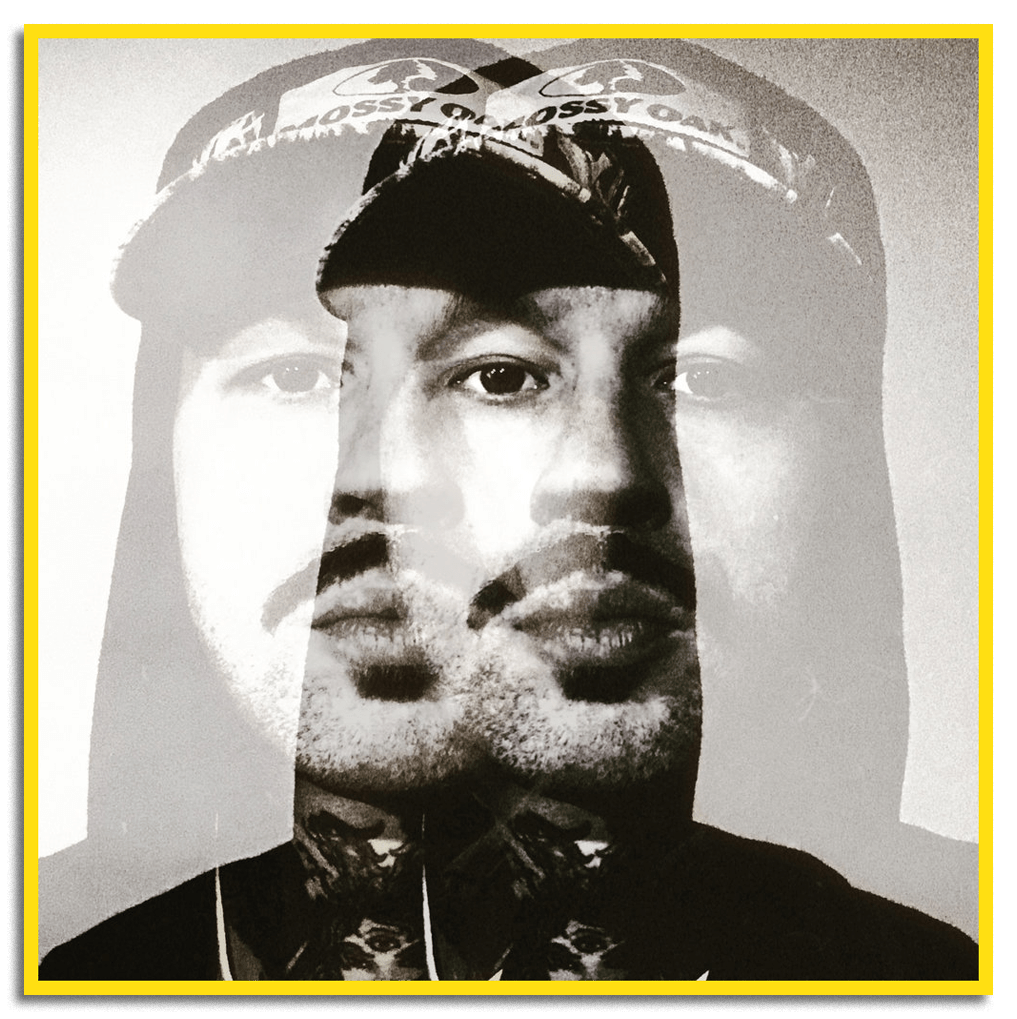
SIMÓN: You also have to, on some level, be anti-social to see it. I mean, every artist imagines themselves as this anti-mainstream rebel, but for true artists that is genuine to a degree. If you’re totally within the bounds of social acceptability, you’ll only see what’s inside of the box—
GOLDPNY: Can’t see the forest…
SIMÓN: Yes—and people really do get pissy when you step outside of it. It reminds me of when that movie Parasite came out in 2019. I had such a gut-level negative reaction to it—I mean, it’s a technically fine movie, it’s a pristinely composed movie—but I left the theater almost enraged. [Laughs] It was like I could feel every NPR American patting themselves on the back for having seen this movie, and afterwards when I told my friends I didn’t like it, I had buddies like, “Dude, you don’t understand how important this is for Korea.” You know, because of its Oscar nominations. And I was like, “No, this sucked. This is the death of Korea.” It’s like a pretty typical mediocre 2010s Hulu movie, but they acted like you’re morally obligated to like it—which is a clear sign it’s propaganda.
GOLDPNY: And now we have that Squid Games or whatever. I didn’t see either. They looked bad.
SIMÓN: Exactly. Parasite is a mild example of this, but people really don’t want to see outside of the box, let alone be told that there is a box. Framing any greater awareness or reasonable skepticism as “conspiracy theory” in this derogatory way has been so effective in keeping everyone in line, especially because, yes, you do kind of have to be a nut to see what’s what.
GOLDPNY: Yeah, I think nowadays you have to be eccentric, or accept being viewed as eccentric, to announce to everyone like, “Don’t you seeee? Look!” But people don’t, because they’re like, “You’re fucking crazy.”
SIMÓN: Which is funny because everyone’s at least mildly schizophrenic now because of social media.
GOLDPNY: What’s so weird is that everyone is now acting as if… Well, okay, I went on this big rant the other day on Instagram, but I had to take it down because I had my workshirt on, [laughs] but I was talking about the trans thing and I was like, “This is undeniably the denial of reality.” It’s literally all of us looking at each other in the eyes and going, “The thing that is is not the thing that is but is in fact another thing,” and we all have to look at each other and go, (robot voice) “Yes, I agree. I agree. I agree.” And no matter what your instincts are saying, no matter what your body is telling you—what your eyes, mind, heart, and soul are saying to you—you have to then lie. I know this is such a reactionary stereotype but it is 1984. Just like in the book, it’s them holding up four fingers and you have to say, “Five.” But you can’t just say it—you have to believe it. So they’ll do whatever they have to do to break your mind into believing it. What happened with all this at first was they said, “You have to respect me for who I am.” And initially everybody was like, “Okay! No problem, we’ll do that.” But now they’re like, “Do you ever get the feeling that when somebody addresses you by your chosen gender, they don’t actually believe it?” It’s not enough to just respect them, you have to believe the lie—and that’s with everything now though. The trans thing isn’t even the worst lie we have to believe, it’s just the stupidest one.
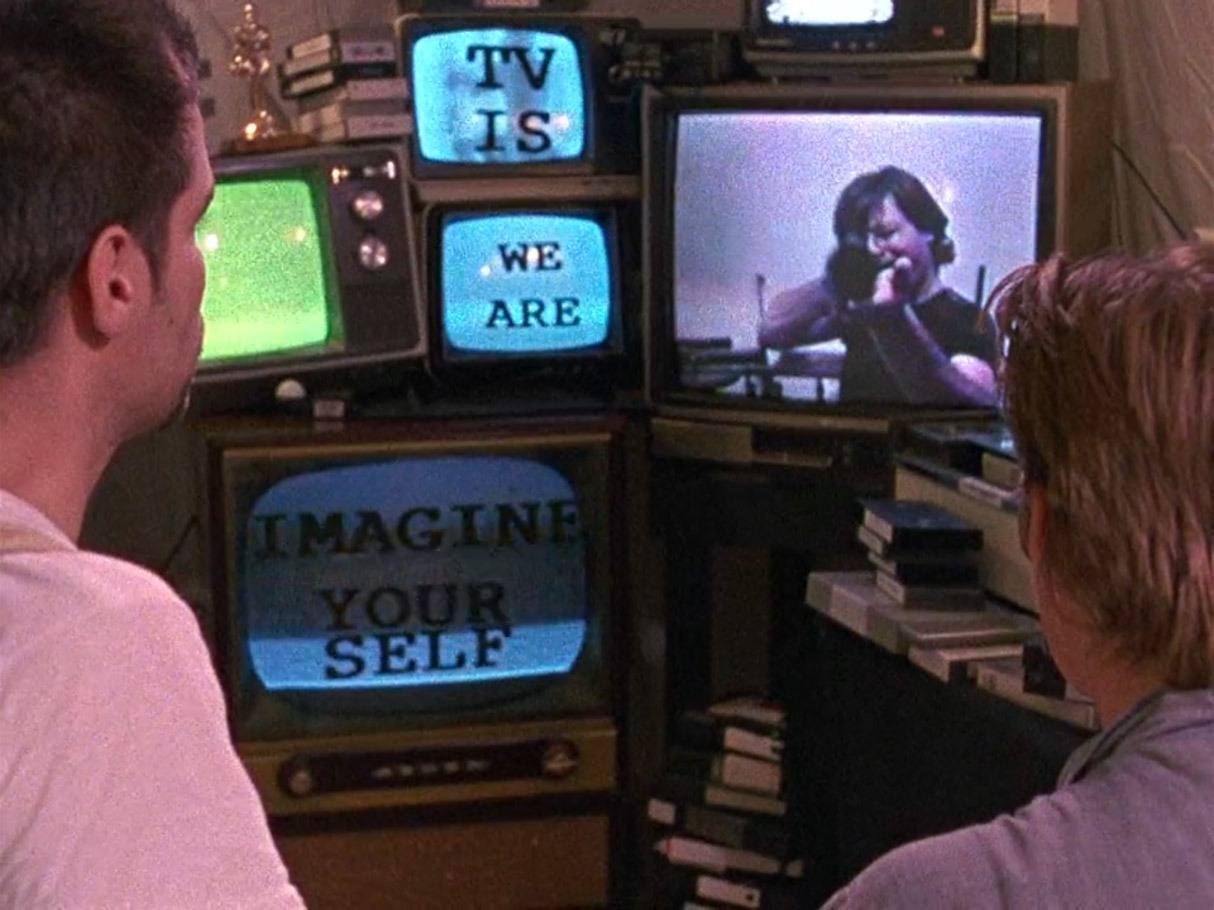
SIMÓN: I said this when we first spoke on the phone, but the way you’ve come across to me is that you’re adamant about there being a Right and a Wrong—and what those rights and wrongs are—and that you clearly take that all seriously, but overall it seems like you’re just having fun.
GOLDPNY: I am pretty hardcore internally. My morality is very black-and-white, but I didn’t used to be. I used to be like, “Everything is greyyy.” But my morality is directly informed by having kids and getting older. I never had a “seeing the light” moment—it’s more that I just accepted that you become more conservative as you get older. That’s a natural evolution. All people are this way.
SIMÓN: People who don’t figure out right from wrong as they get older become complete weirdos.
GOLDPNY: Yeah, it’s weird to be 40 or 50 years old and to be like, “Hey maaan anything goes!” It’s like, “No, dude, it’s your job to maintain the structure of society for the next generation.”
SIMÓN: Especially in the art scene, those who don’t grow out of their “anything goes” phase warp into these hyper-moralist language-policing socialist types.
GOLDPNY: Weird people with giant framed glasses who are permanent critics. Yeah exactly. But the thing is this: I joke around a lot about being some radically patriotic guy online, but I really do believe in some hypernationalist thing that’s not discrimination but preservation of your people and that has nothing to do with race or sex. We’ve already been integrated: black people and white people and all races have already been integrated. I think people who are genuinely white nationalist or people who are genuinely homophobic, to me it’s a moot point. I don’t think it should be illegal to be a racist—to be a black nationalist or a white nationalist, I don’t care, I’m friends with all of them—but I’m just more like, “Well, guys, you lost that battle.” You know what I mean? I think our country is strengthened by the diversity that it has, but I just think we need to accept that it’s coalesced into an American identity that has transcended individual racial groups. In that way, having some sort of authoritarian American national identity is actually a positive step forward, one that withstands imperialism. I don’t want to go out and conquer the world. It’s more like “America First” nationalism: close our borders, let’s take care of our people, let’s help our black people, our homeless people, our gay people, whatever—you know?
SIMÓN: That’s such a taboo stance, even though it seems fairly standard for the rest of the world. It wasn’t until I moved to the Bay Area that I realized just how taboo it is. It kind of blew my mind. To them, they mostly took it for granted that “global outreach,” when it’s framed that way, is a net positive. They’re like, “Well, don’t you want to help people?” To which I’m like, “Well, yeah, fucking obviously, but that’s clearly not what’s happening here.” [Laughter]
GOLDPNY: We’re reaping the fruits of that now, and it’s like, “Well, is it good? Are you happy with the way the world is?”
SIMÓN: Exactly. No one’s happy.
GOLDPNY: I never understood this sort of liberalism that’s so anti-community. It’s very like, “Hey everyone can do and be whatever they want and everyone’s cool,” which in reality just introduces a lot of conflict, because everyone can do whatever they want but not everyone likes that. How do you enforce such atomized freedom? There has to be some sort of duty to maintain peace among your own people, and you can’t do that by making everybody hate each other and hate their land and hate their ideas—
SIMÓN: Which is always just projected self-hatred.
GOLDPNY: It is!
SIMÓN: They hate themselves—
GOLDPNY: And they hate their family.
SIMÓN: Yes, and they mask that hatred as a political project. Listen, everyone hates themselves to a degree, but I’m with the Unabomber on this one—or at least regarding his description of leftism: that it’s just this mass cohesion of self-hatred and “feelings of inferiority” projected outwards, which is why their politics are so interlaced with these therapeutic concepts of self-worth and self-importance. It’s all cope for their unified feelings of worthlessness. It’s just not a good place to be if you’re genuine about doing good.
GOLDPNY: Yes. I think the intervention though, for me, was hardcore music. I grew up with a poor family, and my dad was kind of in-and-out and he was a crazy dude when he was around. He was a scary guy involved in crime and violence, so my childhood was very crazy—and so I went from being a kind of hoodlum to a sad goth kid, but when I was in my teen years I found out about hardcore, which turned it all around for me. It was almost like joining a gang—it was the first time I went into a community where people have very strong values and rules. They were like, “You don’t beat up women, you don’t rape, you don’t steal or cheat.” I mean obviously nobody should do these things, but it was the first time I saw this in a cultural sense where people were like, “This is our community.” You don’t get to just walk in there because you like the same music. There was a vetting process.
SIMÓN: Sure, there were codes of conduct.
GOLDPNY: Yeahhh, and the people who were de facto in charge wouldn’t just be like, “Oh hey you like this band? You’re welcome to come in here.” It took some time. You had to warm up to these people—but once you were in, you were in. That was your community. Their values, even in the music too, were very much about self-determination and personal power and morality being a driving force against nihilism and hedonism. Rather than being self-destructive, it was all about being self-empowered—but it was cool though. It wasn’t nerdy, it wasn’t about being a boy scout. It was militant. It’s like that funny ass Mutant tweet where he said something about the philosophy of Hatebreed, like, “If you’re a negative person, I’ll stomp you into a coma.” [Laughter] But that was the feeling! And it was cool to feel strong—it was cool to be in a place where people were like, “We’re strong, we have power, you matter, you’re a part of this—but you gotta go out and do good in the world.” You know what I mean? You can’t just go out and be a drug addict. You have to go out there and be somebody.
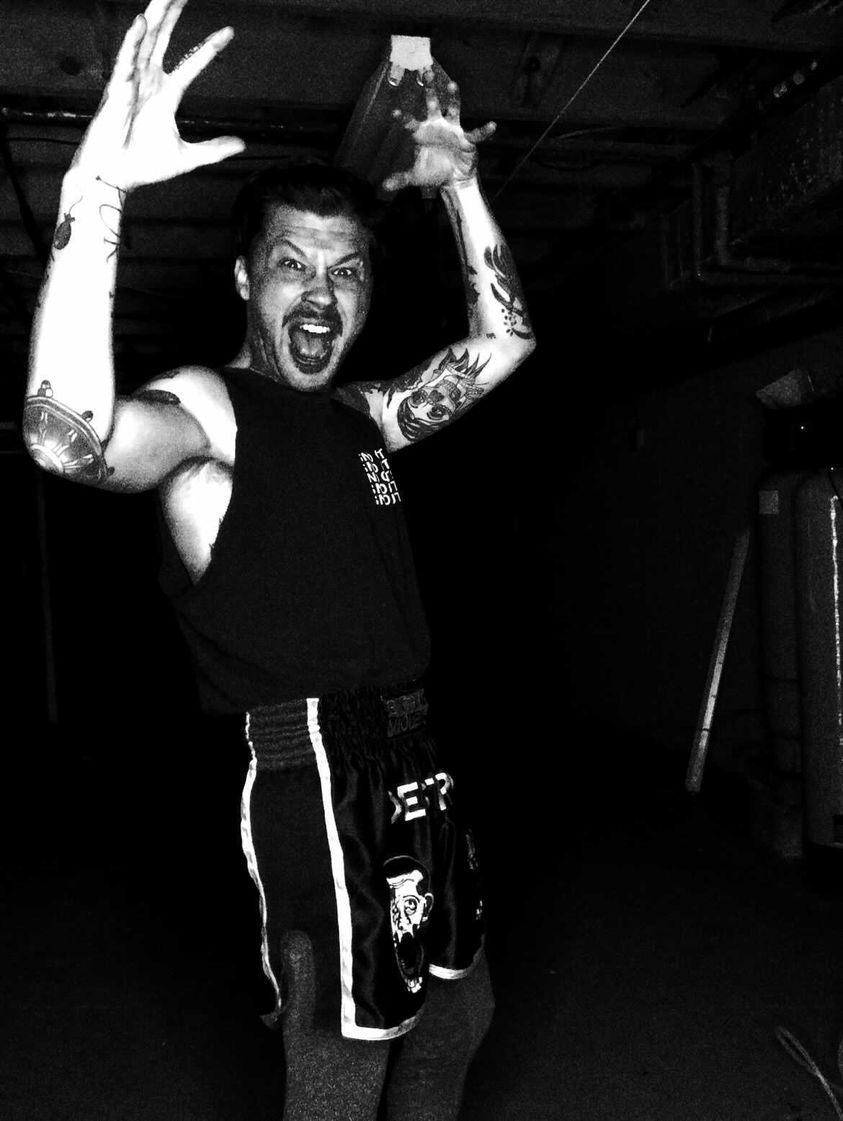
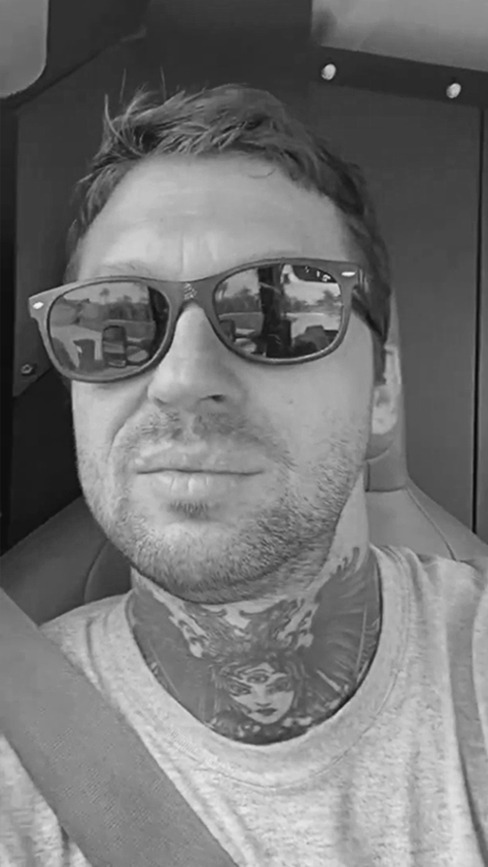

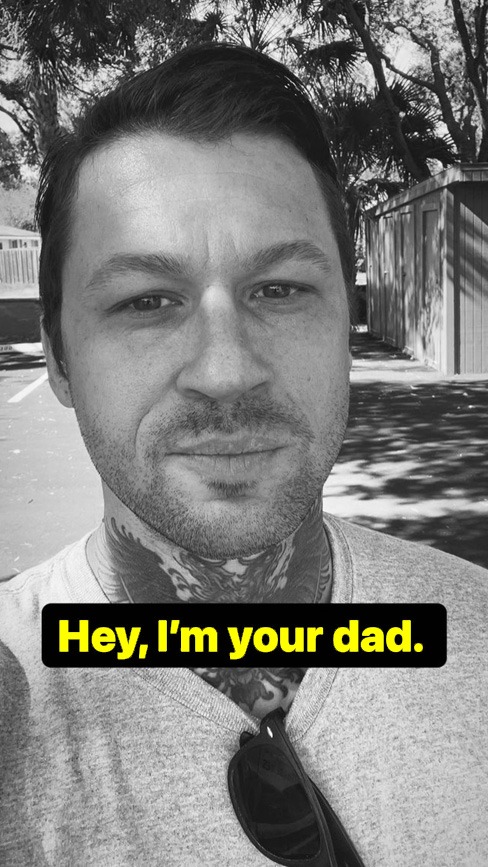
SIMÓN: You’re completely independent now, too, right?
GOLDPNY: Completely. I was part of a small indie label that was launching that—well, I don’t think they even exist anymore. I think they collapsed, but we had this whole fallout because I was just tweeting about, you know, stupid shit [laughter], and they were like, “You fucking don’t do that, maaan, or you’ll get in trouble.”
SIMÓN: That’s a very common story.
GOLDPNY: You know what’s funny about it though? Is that after it happened to me, it made me go, “Oh, this doesn’t matter.” Because when you think about if you’ll get in trouble for saying something, and even if you actually do get in trouble, no one really gives a shit in the long run—either they’ll forget about it or they’ll later come to agree with you when it’s safe to do so. Even if you bring it up a year later, they’ll be like, “That was a year ago? Who cares?”
SIMÓN: Most Twitter drama is just lighting farts on fire. Having said that, being independent now, do you feel pressured to be “likeable” or does that not matter now too?
GOLDPNY: I feel the opposite. I feel like, well, if people don’t want to support me for who I am, then they don’t want to support me. I’ve worked in the industry professionally with people who are on labels and done songwriting sessions, so I’ve kind of seen how the sausage gets made, and I’ve come to accept that I’m probably not going to become a millionaire off of this—I mean, I’m not saying I won’t because maybe I will—but people don’t really give a shit anymore how you make music. The stuff that I have coming out I’m pretty confident people will like, but here’s the thing—and I was talking to my brother about this earlier because we’ve been kicking around name ideas for this new thing we’re doing—but we had an old band called Soft Black Skin, okay? And it was actually in reference to leather [laughs], but this manager we had—this was back in 2016—this manager, she made a big deal out of it.
SIMÓN: Soft. Black. Skin.
GOLDPNY: Yeah, and she was the daughter of another pretty famous manager of big rock bands, so she was trying to launch her own big thing. We were one of her two bands, and she was like, “Hey, man, none of these labels will work with you because of this name.” So we changed our name, but it was over at that point. She didn’t want to work with us anymore. So then we started our new band and I ran another band name by my brother, he talked to another music manager, and they were like, “Yeahh, that’s not gonna fly.” It’s harmless, but the name is White Crime, and they didn’t like that. In my mind, I’m thinking like Bernie Madoff, Enron—like white collar crime, right?
SIMÓN: Right, it’s NWA. It’s tapping into the zeitgeist, the racial tensions of this moment.
GOLDPNY: Yeah, but it’s kind of also like: when you think about it, what is it saying? Nothing. It’s a nothing name. It doesn’t inherently mean anything. But so we started having this conflict with another music manager person who was like, “No way, dude, that’s going to create controversy.” Here was my thinking, and it touches on everything we’re talking about here—I was like, “If we change, this bitch won’t be here anyway.” Just like the last manager with the name change, this is the same thing. It’s like: a woman falls in love with you for who you are and then she tries to change you, you change for her and now she doesn’t love you anymore. Because she didn’t want you to change, she just wanted to have a say in who you are. What you’re supposed to do there is refine who you are to begin with.
SIMÓN: It’s a test of your character and convictions.
GOLDPNY: Exactly, it’s a complete test. There’s a spiritual aspect here where it’s like, “Hey, if I bend for you, you’re not going to respect me.” You compromise your identity and in doing so you completely remove any of your initial appeal, because now you’re a compromising person, which, as an artist, is like chopping your dick off.
SIMÓN: Camille Paglia calls the extreme version of this sort of cynically compromising person the “court hermaphrodite,” with the “court” being the king’s court—you know, this nexus of power wherein this person, with his sexual/genital versatility, will “bend over backwards” and “kiss ass” and “take it up the ass”—metaphorically and even not metaphorically speaking—to essentially ascend into greater ranks of power and social favor. It’s such a loathsome archetype, and one that runs rampant in the art scene. Especially in the celebrity side of art.
GOLDPNY: Court hermaphrodite, hm… Yeah, because it’s not that you want to simply be controversial as an artist. You’re being vulnerable, so the idea that you have to be vulnerable and bare your soul but then have to edit that out is completely defeating the whole purpose.
SIMÓN: Well, even being quote-unquote “vulnerable” has become a cynical, calculative part of their process too. Being publicly “vulnerable” about some unverifiable trauma from your past—that’s in everything now, which doesn’t promote “empathy,” or whatever, as they think it does. It just makes everyone cynical and suspicious.
GOLDPNY: Yes, and that’s evil. That’s hideous. I hate that.
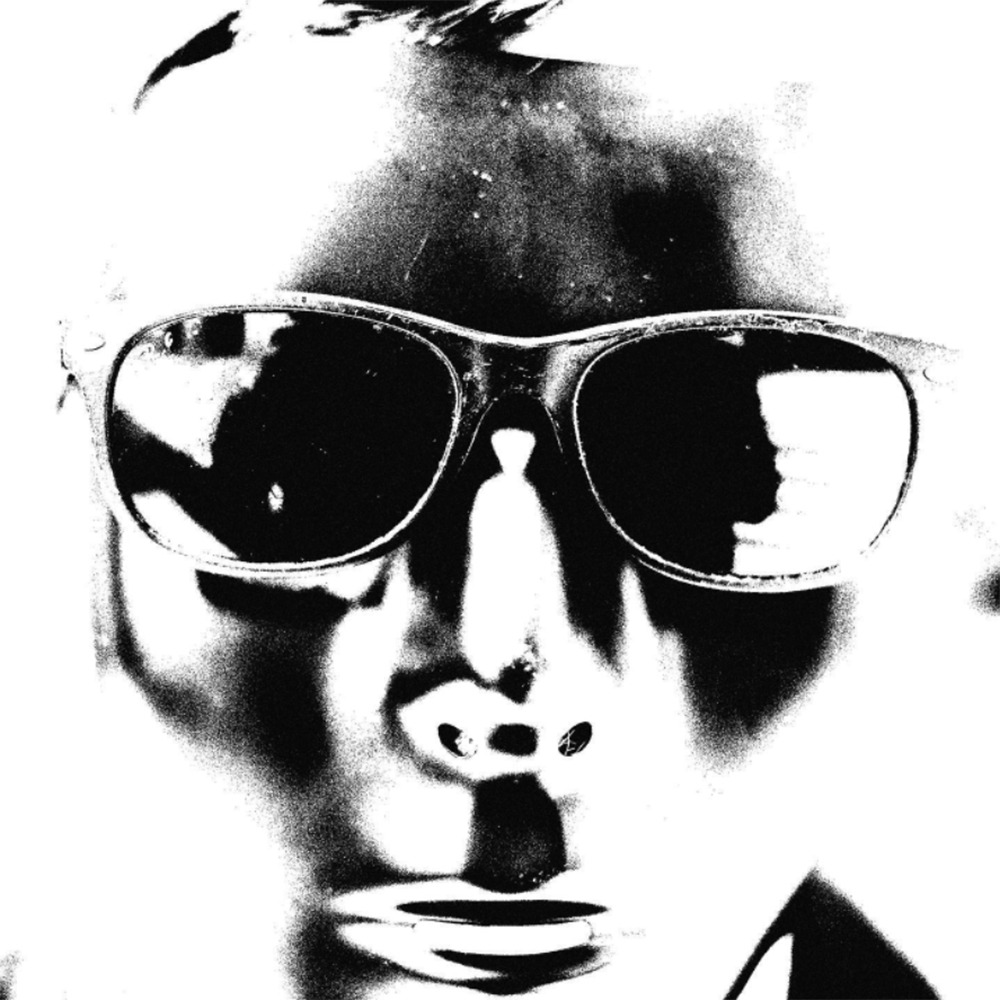
SIMÓN: With GoldPNY, is there a persona attached to that?
GOLDPNY: Yeah, yeah there is. If you notice all the imagery I’ve put out—which is limited but there’ll be more—it’s like: camo hat, hood over the camo hat, sunglasses, bandanna, you know? And it’s essentially a modern Unabomber, and the whole reason for that is because I recognized that over the course of the pandemic, I was kind of becoming a right-wing extremist—unintentionally. Like I found myself getting into arguments with my sister-in-law where I was like, “You know what we fuckin’ REALLY NEED!” [Laughs]
SIMÓN: I get it. I have peace of mind now, but I nearly reached my boiling point a few times there during lockdown.
GOLDPNY: Yeah, there was a time there where I was like, “We need to fuckin’ arm up!” And I started to realize I was becoming like Ted Kaczynski out in the woods—partly because I left L.A. and moved to a really remote part of Pennsylvania on two acres of land, just away from everybody. I was working from home and I was just going bonkers. But when we moved to Florida last year, that’s when I started GOLDpny after I realized, “Okay, I’m going kind of crazy here.” But I also started noticing that all my lyrics were a mixture of like ’90s gangster rap mixed with radical ideology, and then on the other side of it I was becoming deeply religious. So, GOLDpny is sort of like a modern techno version of a terrorist. Even the name “GOLDpny” itself, I wanted to think of what an online handle would be, because it’s kind of vague—like, what the fuck is a gold pony? I see all these handles where I’m like, “What does that mean?” There’s a couple people I found recently who are really extreme, but I didn’t know they were until I started looking at their stuff and I’m like, “Oh, you really fucking like this shit. You’re maybe a dangerous person.” Or maybe it’s just a guy online who’s just pretending, you know? And so I started thinking that’s what GOLDpny is. It’s me for sure—to the max—but like an extreme version of me. You know, because all the lyrics are screamed—I mean, I’m singing a lot on this new band with a broader vocal range—but the screaming stuff, every single aspect of it is like, “I’m gonna make break beats and all the samples for GOLDpny. All the lyrics are gonna be like Popular Front basically.” You know what I’m talking about? It’s all guerilla warfare—all these things, I wanted every song to sound like a warzone, every song to sound like some sort of gangster-type militia man. Like a wigger who’s a militia man, [laughter] you know what I mean?
SIMÓN: I can see it. I mean, we came of age during George Bush and the War Against Terror, and all that, while having these scary ideas of “terror” and “terrorism” basically ingrained into our collective psyche. After later learning how much of that was just bullshit propaganda, we’re still only starting to articulate what all that was. Now, seeing that same rhetoric used to describe normal working-class white Americans is really odd and unsettling—but, I mean, it’s also kind of funny.
GOLDPNY: Yeah, there is a sort of meme aspect to it now.
SIMÓN: Yeah, the imaginary danger of it all is just absurd and fun to play with. Even years ago, I always felt like Johnny Knoxville and the Jackass crew in the 2000s, alongside maybe Harmony Korine, were inaugurating white trash culture, fashion, and just the overall white trash sensibility into pop culture as this sort of “white face” minstrel show.
GOLDPNY: Die Antwoord was part of that, too, for sure. I know what you’re talking about.
SIMÓN: Much of MAGA played into that as well, though it got stuck in this sort of juvenile trolling. I don’t see you as a troll. What you’re doing is sincere. I think it’s more like being a rascal, in a good way though.
GOLDPNY: There’s a tongue-in-cheek thing going on. I’m smiling, I’m being a rascal, but I’m telling the truth.
SIMÓN: This is why I distinguish being a “troll” and being a “rascal,” like a rascal in the style of Jackass. That resonates with me, because when I find a group I like, a group of like-minded fellows, even then I don’t necessarily enjoy just sitting around and dogmatically agreeing with each other on everything. When I really like someone, my impulse is to fuck with them.
GOLDPNY: Yeah, that’s being bros. That’s being who you are. If you’re just agreeing all the time, you’re not being who you are.
SIMÓN: That’s my Jackass ethos, this sort of male utopia: friends getting together and fucking with each other and kicking each other in the nuts with no hard feelings. You know, because it’s funny and also because we all kind of deserve it [laughter]—and I’d rather have friends that kick each other’s nuts than have to deal with any passive aggressive diplomatic bullshit.
GOLDPNY: That’s really what it is to be accepted. If you can disagree and still be friends, you’re being accepted for who you are.
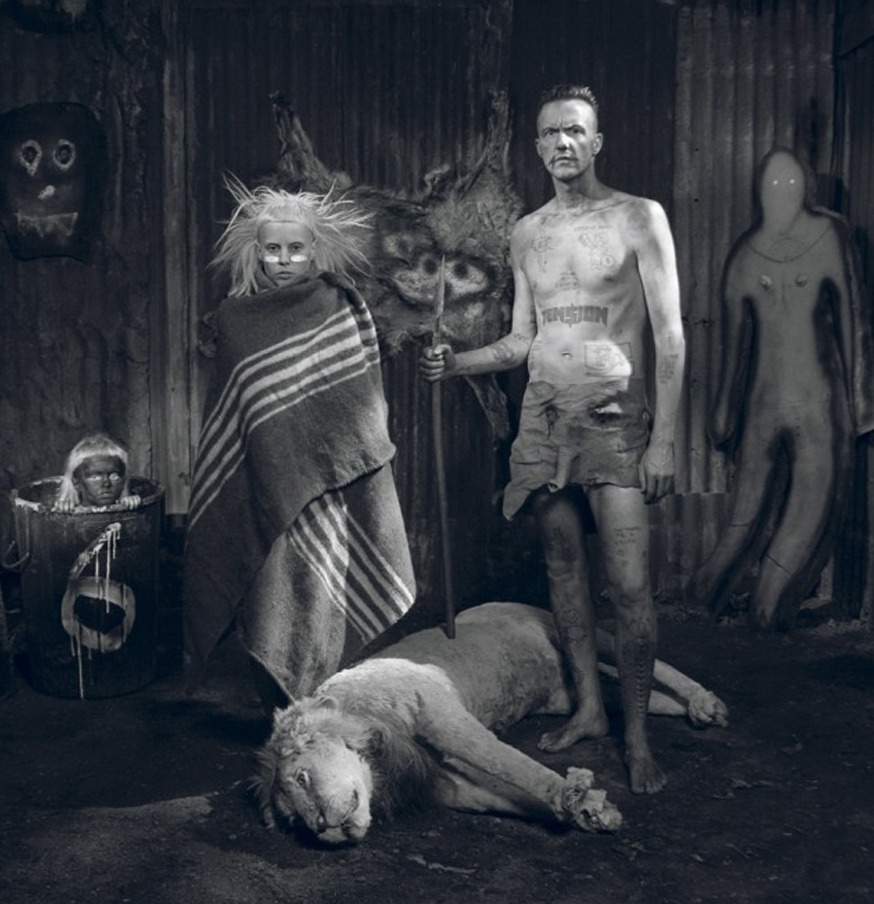
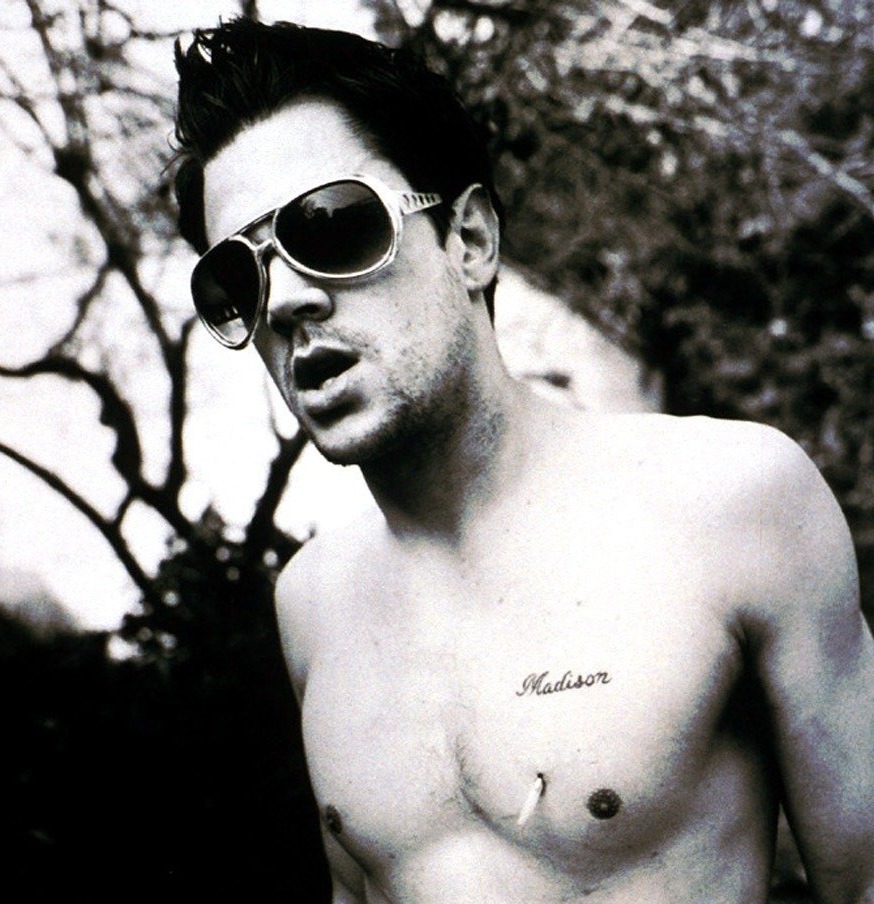
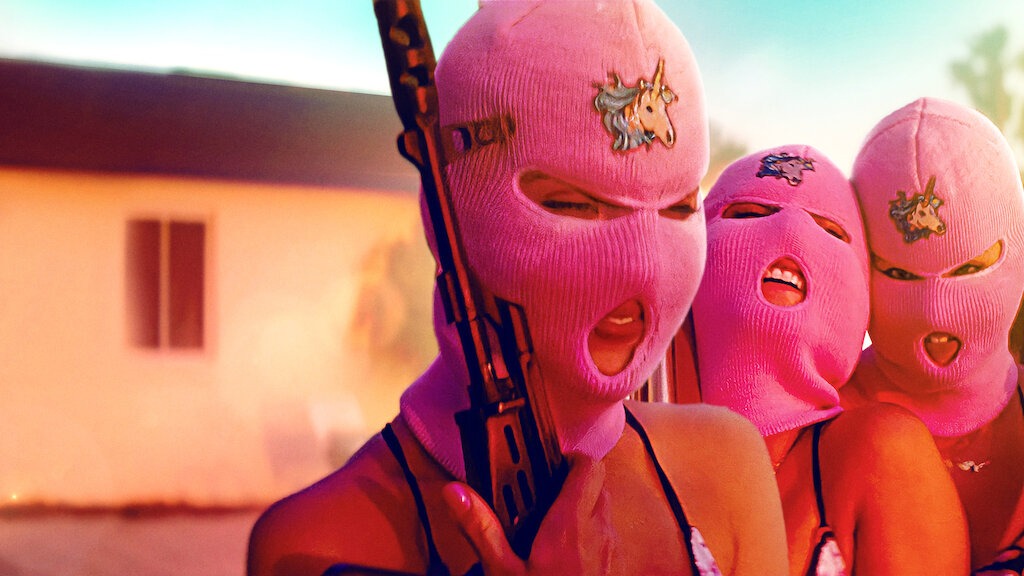
GOLDPNY: Here, pop culture is the fabric of our country. It’s the fabric of the American identity as it exists. We are pop culture—so when our pop culture says, “This is what’s going on,” that’s the rule of the land.
SIMÓN: You’re exactly right. Pop culture, especially through the medium of advertising, is the stained glass windows of the church, of our culture’s moral structure.
GOLDPNY: That’s it. The Cathedral exists—that’s what the mainstream media is. You touched on this earlier—these socialist people, these left-wing people, they think they have a monopoly on fucking art. I think if I have a goal in music, it’s to be oppositional—not as a reactionary, like, “You move and I freak out”—but as an actionary.
SIMÓN: Something you discussed on The Saltbox Podcast was having a “dick drive,” which is a phrase I’ve adopted since listening to your episode. Being sincere and truly being
yourself, as a man, means thinking with your dick, whereas trying to intellectualize yourself in this clever, self-conscious, irony-coded way is a dead end.
GOLDPNY: That’s the thing: people are overthinking everything. They’re not stupid, they’re being too smart.
SIMÓN: Whereas being actionary is having this libidinal dick drive, this purely masculine will that seems mostly absent right now. It’s a bit of a cliché but there’s a very fine line between creativity and destruction—like, the famous example of this: most of the high-ranking Nazis were wannabe artists. Hitler wanted to paint. Goebbels wanted to be a writer. Rosenberg studied architecture. All of these guys, to various degrees, were frustrated in their artistic ambitions, so they went the evil authoritarian route. This relates back to the anti-social nature of artists. Granted, some artists do seem genuinely happy and untroubled, but I feel the artistic impulse in general has a destructive, libidinal origin that, if not channeled or sublimated through art, turns violent—to put it crudely.
GOLDPNY: That’s the difference between those people who are self-destructive nihilists and those who are actually creative, who aren’t self-destructive but outwardly destructive. When I started GOLDpny, it was a reaction. It was very reactionary, like anti-SJW, anti-liberal-left-communist—all that stuff. WAR was very much about the culture war—I tried to be as literal as possible, in a spiritual sense—but then ASSASSINS came about as an accident, as a series of demos that all just came together. All of it feels prescient and all of it feels like it’s building towards something, and I do want to take it to a bigger level and I feel that my new stuff is going to push it over the top. Now, coming full circle, not being in that sort of old-school fuckin’ lib self-destructive self-centered thing, and having an aggressive but ultimately positive goal of really wanting to, you know, lift people up, is going to make everything I do creatively a cut above the rest.


